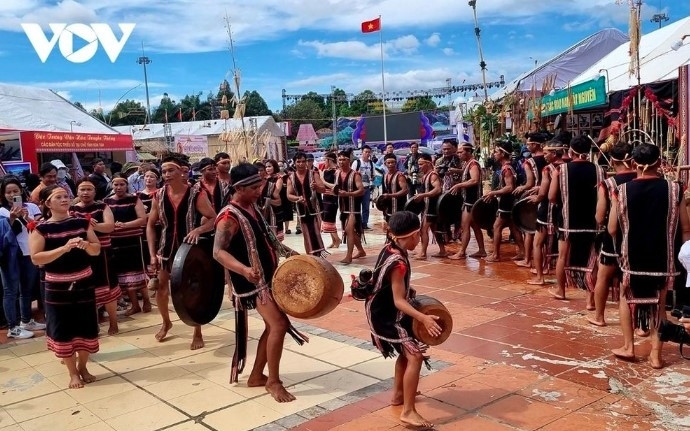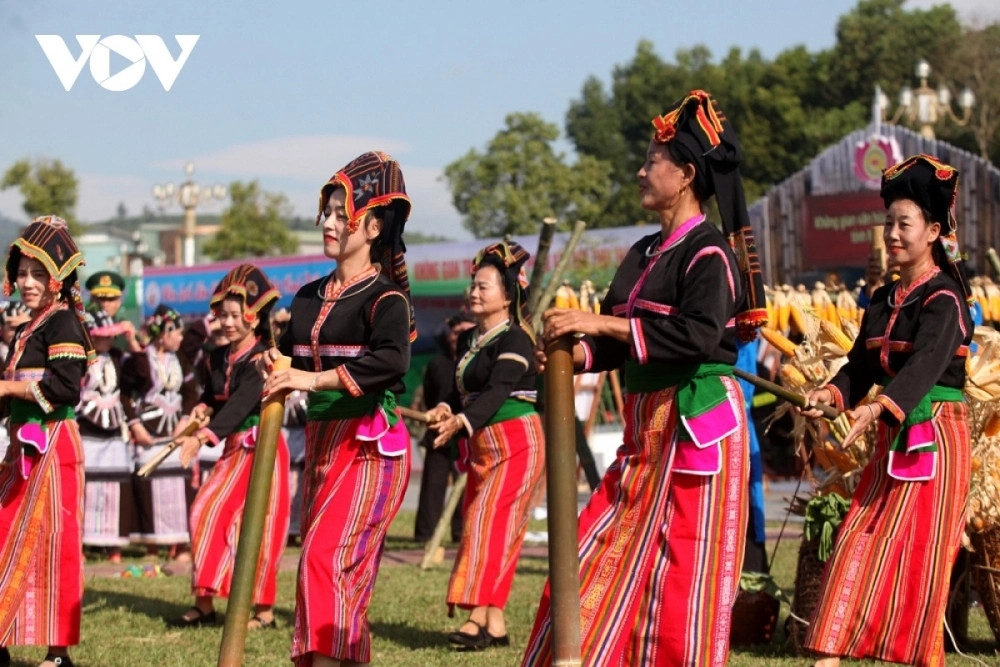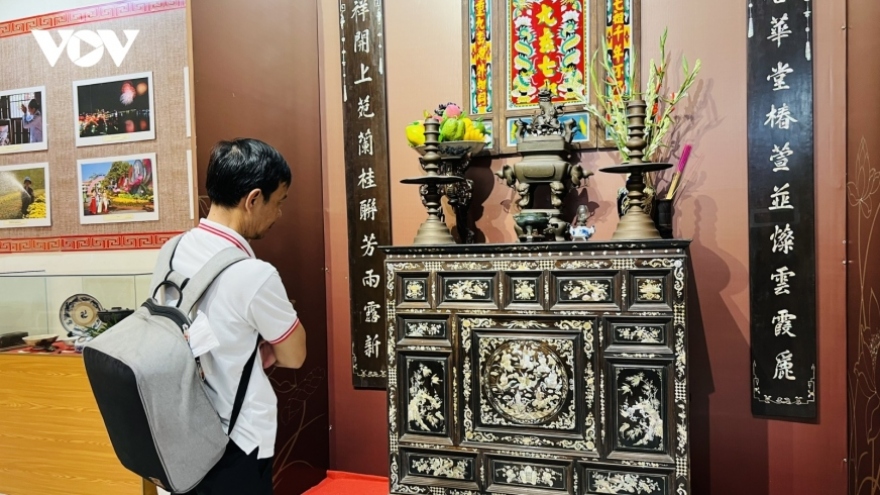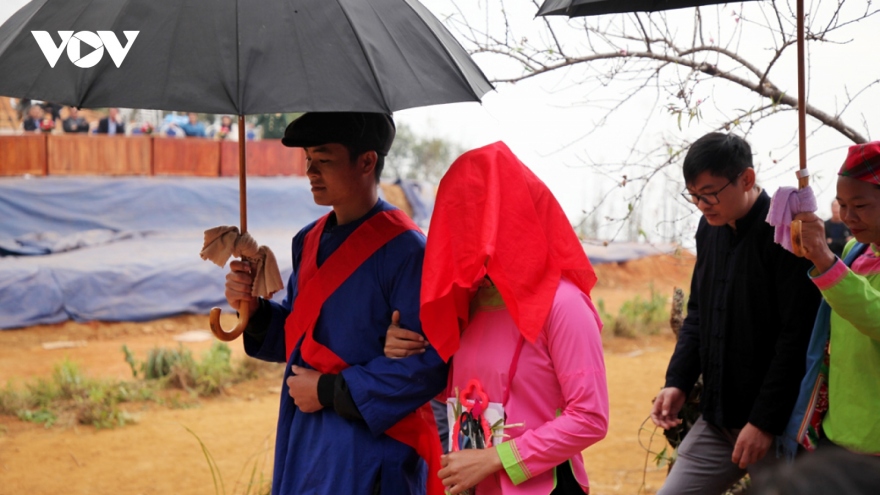Promoting fundamental rights of ethnic minority people in Vietnam
VOV.VN - Promoting the fundamental rights of ethnic minority people has been made the top priority in Vietnam’s development strategies and is clearly prescribed in the 2013 Constitution.
A Vietnamese delegation recently defended its fifth national report on the implementation of the International Convention on the Elimination of All Forms of Racial Discrimination (CERD) at the 111th session of the UN Convention Committee in Geneva, Switzerland.
Tran Chi Mai, deputy director of the International Cooperation Department at the Government’s Committee for Ethnic Minority Affairs, says the defence report affirms Vietnamese commitments to implementing the rights and obligations of member countries of the Convention through the achievements it has recorded in perfecting its legal system in accordance with international standards and in protecting the universal values of human rights in general, as well as the country’s efforts to contribute to eliminating all forms of racism and discrimination in particular.
Promoting ethnic minorities’ rights – a measure of social progress

Since its becoming an official member of the CERD in 1982, Vietnam has successfully defended the national report on implementing the CERD four times in 1983, 1993, 2000, and 2012, receiving the appreciation of member countries. It has seriously recognised recommendations which are appropriate to the actual conditions, situation, and interests of the Party, State, and people. It has then internalised and supplemented many specific legal regulations, formulated and planned policies aimed at creating a relatively complete legal corridor to ensure political civil rights, as well as the socio-economic and cultural rights of ethnic minority people.
The Party and State are determined to ensure the rights of ethnic minorities as a measure of social progress and development, considering it to be an important issue that is always given a top priority in outlining socio-economic development strategies, thereby contributing to the country’s overall achievements.
In recent years, the most impressive achievement in ensuring the rights of ethnic minorities in the country is that the health insurance coverage for ethnic minorities has been raised to nearly 100%. The Party and State have introduced policies regarding human resource training and appointment of ethnic minority officials in State organisations. The Prime Minister’s decision to transfer five schools offering foundation courses to the Committee for Ethnic Minority Affairs aims to create conditions for these schools to get more investments and attract ethnic minority students. Indeed, Vietnam also boasts a system of nearly 400 boarding and semi-boarding schools for ethnic minorities, further opening up opportunities in order to develop education and training for children of ethnic minorities.
According to Nguyen Lam Thanh, vice chairman of the National Assembly (NA)’s Ethnic Council, 89 out of 499 deputies of the current National Assembly are of 32 ethnic minority groups, making up 17.8% of the total, the highest compared to previous terms. So far, 52 out of all 54 ethnic minority groups in Vietnam have representatives elected to the legislative body through the sessions.
No concept of indigenous people in Vietnam

Vietnam is a unified country which is home to 54 ethnic minority groups, of which 53 groups are represented by more than 14.1 million people, living mainly in remote and mountainous areas. Unlike many multi-ethnic countries, Vietnam’s ethnic minorities do not have their own territories but live side by side. The socio-economic development level of ethnic minorities is often lower than that of the Kinh, the largest group in the country. Therefore, the Party and State’s goal is to ensure the equal rights of all ethnic minority groups, harmoniously resolve relations between groups, help each other develop together, and create tangible changes in relation to socio-economic and cultural development in ethnic minorities-inhabited areas, especially in the Northwestern, Central Highlands, Southwestern, and Central coastal regions.
In line with this, Vietnam strictly prohibits all forms of discrimination, division, sabotage of national unity policies, and the incitement of national hatred. Acts of racism or support of any illicit activities which cause division, discrimination, and racism are strictly prohibited and duly punished by law.
Nguyen Van Ky, deputy chief of the Government’s Standing Office for Human Rights, affirms that in the country there is no concept of indigenous people, but only the common concept of ethnic minorities. This matter is clearly expressed in Article 5 of the 2013 Constitution of the Socialist Republic of Vietnam; and in legal documents such as the Law on National Assembly Elections, the Law on Nationality, the Penal Code, the Criminal Procedures Code, and the Civil Code.
“The Party and State have approved many major national target programmes for ethnic minority people in mountainous and far-flung areas, yielding great, practical gains. Among them are Programme 134 on land allocation for production and housing; Programme 135 on socio-economic development for especially difficult communes and ethnic minorities-inhabited areas; and Programme 30a on poverty reduction for 62 poor districts nationwide. Thanks to these programmes, the socio-economic life in these areas has improved significantly,” elaborates Ky.
Joining the CERD is an opportunity for Vietnam to exchange and cooperate with other countries, intergovernmental groups, and non-governmental organisations towards the goal of ensuring all people enjoy the basic human rights, including civil-political rights and socio-economic-cultural rights.
By joining the convention, the country gets monitoring support from the Convention Committee. Through ‘concluding observations’ the Vietnamese State can refer to and apply international law, experience, and practice of member countries in perfecting its legal system, thereby promoting mutual understanding between countries and increasing its position within the international community.



